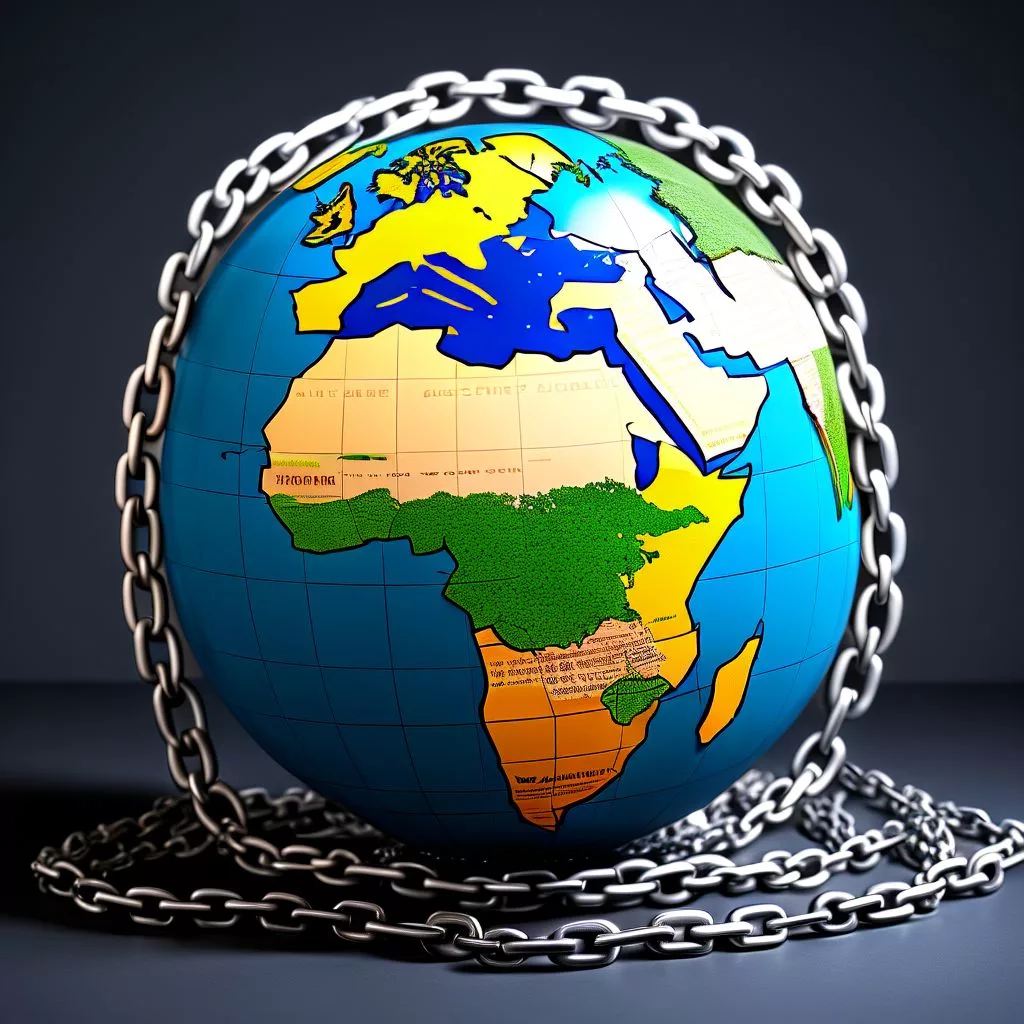South Africa is making bold moves in its foreign policy, shifting closer to Russia, China, and Iran, which is putting its longtime friendship with the United States at serious risk. This change could lead to harsh consequences, like economic sanctions that might hurt South Africa’s economy and limit its ability to trade with other countries. U.S. lawmakers are increasingly worried, suggesting penalties for South African officials and even introducing bills that could further strain relations. As tensions rise, South Africa must carefully balance its new alliances with the potential fallout from its decisions, all while the world watches closely.
Rob Hersov is a sharp critic of South Africa’s current political scene, especially the ruling ANC party, which is losing support from black voters. He believes that while the ANC had some successes in the past, it is now plagued by corruption and inefficiency. Hersov also questions the strength of opposition parties, suggesting they are too weak to challenge the ANC effectively. His comments spark important conversations about fairness, privilege, and the need for real change in South Africa’s society. Overall, he urges South Africans to engage in open discussions to build a better future together.
A recent trip to Israel by nine South African MPs has caused a big stir, as it seems to go against the country’s strong support for Palestine. Critics are demanding an investigation into who paid for the trip and what its true purpose was, especially since South Africa is currently involved in a legal case against Israel for alleged genocide in Gaza. The MPs, from various political parties, met with Israeli officials, raising eyebrows about their actions during such a sensitive time. Many are worried that this visit sends the wrong message and undermines South Africa’s commitment to justice for Palestinians, sparking calls for accountability and transparency in government actions.
On May 6, 2024, a terrible tragedy struck in George, South Africa, when a building on Victoria Street collapsed, killing 34 people. The disaster was not just bad luck; it happened because of serious mistakes and neglect by officials and the construction company. An investigation revealed that safety checks were ignored and construction rules were broken, leading to a call for justice from Minister Thembisile Simelane. As those responsible face legal scrutiny, the community mourns the loss and demands accountability to ensure such a heartwrenching event never happens again.
In Cape Town, families from Masonwabe Hostel have been living in a temporary area for 12 long years, waiting for promises of a return home that never come. Their new homes are poorly built, with thin walls that can’t protect them from the cold or the violence outside. Residents like Andile and Nolusindiso express their frustration, questioning why the city is building roads if they are supposed to be moving back soon. Despite the harsh conditions, these families show remarkable strength, trying to make their lives better while hoping for a brighter future.
In South Africa, many children run away from home due to deep pain, neglect, and fear. They may flee from violence, substance abuse, or simply feeling unloved. This troubling trend leaves families heartbroken and searching for answers. To help these children, it’s vital for parents and communities to create safe spaces where kids feel heard and supported. By understanding their struggles and offering care, we can guide them back to safety and hope.
The clash between faith and modern conflict is a tricky issue, especially when ancient stories are used to talk about today’s problems. Reuben Wagenheim, a synagogue leader, shared a cheerful email about community events but ended with a shocking reference to a Biblical enemy, Amalek, comparing them to Hamas. This stirred up strong reactions and led to an apology from Wagenheim, who realized his words could be seen as promoting violence. The incident sparks important questions about how we interpret religious texts in our world today, reminding us of the need for peace and understanding amidst conflict.
In Cape Town, a storm is brewing around Mayor Geordin HillLewis, who stands accused of bullying a local man over a supposed land violation. The conflict began when HillLewis sent an email claiming the man was running an illegal car repair shop at home. This sparked multiple police visits, but no evidence was found, raising eyebrows about the mayor’s use of city resources for personal issues. A heated confrontation further added fuel to the fire, leading to allegations of intimidation. As the city watches closely, important questions about power and ethics in leadership hang in the air.
Cape Town is gearing up to help the homeless as winter approaches. The city plans to add 200 new bed spaces in shelters and provide vital resources like food, toiletries, and training for shelter staff. This initiative encourages community support, urging locals to donate goods or volunteer their time. By working together, Cape Town aims to create a warm and safe environment for those in need during the cold winter months.
A Night of Celebration Turns to Tragedy: The Catastrophic Collapse of Santo Domingo’s Jet Set Nightclub
On a tragic Tuesday night, the famous Jet Set nightclub in Santo Domingo collapsed during a lively concert, turning celebration into chaos. Hundreds of people were inside when the roof gave way, and despite the brave efforts of over 300 rescuers, no survivors were found after a full day of searching. The beloved club, known for its vibrant music and dancing, had been a cultural icon for nearly fifty years, making the loss even more heartbreaking. As the nation mourns, the memory of Jet Set—a place of joy and togetherness—will forever be marked by this tragedy.
The crisis of pit toilets in South African schools continues, with 141 schools still using them as of March 2025. Despite claims of progress, many children face unsafe and unhealthy conditions while the government struggles to keep its promises. Activists and communities are demanding better sanitation, highlighting the urgent need for change after tragic incidents involving children. A new app has been launched to help communities report remaining pit toilets, but the fight for safe and dignified facilities for all learners is far from over. The hope is that the government will finally take action and protect the rights of every child in the classroom.
South Africa is facing a big problem with renewing driver’s licences because the only machine that prints the cards has broken down. This has left many people stuck with temporary licences and waiting in long lines. The government is trying to fix the situation, but legal issues make it tricky to get new machines. People are frustrated, as they need their valid licences for work and daily life. A proposed solution is to extend the licence validity from five to ten years, which could help ease the backlog and improve the system for everyone.
Great news for South African drivers! Starting April 2, 2025, fuel prices are set to drop, bringing happiness to many. Petrol prices will go down by 58 cents for 93 octane and 72 cents for 95 octane, while diesel will drop by an impressive 86 cents per litre. This price cut means families can travel more easily, and it helps small businesses too, making life a bit easier for everyone. It’s a welcome boost that connects people and encourages more adventures across the beautiful landscapes of South Africa!
Cyril Ramaphosa, the President of South Africa, has boldly declared that his party, the African National Congress (ANC), will not let businesses dictate government decisions. He insists that all choices will be made for the people, not for wealthy business leaders. This strong statement comes after business figures expressed worries about political tensions, especially concerning a coalition government. Ramaphosa’s commitment to the people’s needs shows the ANC’s dedication to democratic values, promising to stand firm amid challenges and ensure the government serves its citizens first. As the ANC navigates these tough times, eyes are on them to see how they uphold their promises.
Electric bicycles, or EBikes, are becoming super popular in South Africa, but new rules are coming to make riding them safer. Starting December 2, 2024, some EBikes will be treated like cars, meaning they need to be registered, licensed, and the riders must have a driver’s license. This change aims to protect pedestrians from the fast and quiet bikes zooming around. With more people using EBikes for commuting and tours, it’s important that everyone knows the new rules and that cities have the right bike lanes and signs to keep everyone safe. The future of EBikes looks bright, but it will require good planning and awareness to make it work!
South Africa is facing serious accusations that it knew about Hamas’ attack on Israel before it happened. Minister Ronald Lamola strongly denied these claims, calling them “false propaganda” meant to hurt South Africa’s reputation as a champion of human rights. He emphasized that no officials in South Africa were aware of the attack and vowed to protect the country’s standing in the world. This situation comes during already tense relations with the United States, which has imposed tariffs on South African goods, adding to the complexity of global politics. Despite these challenges, South Africa remains committed to its values of justice and human rights.
















